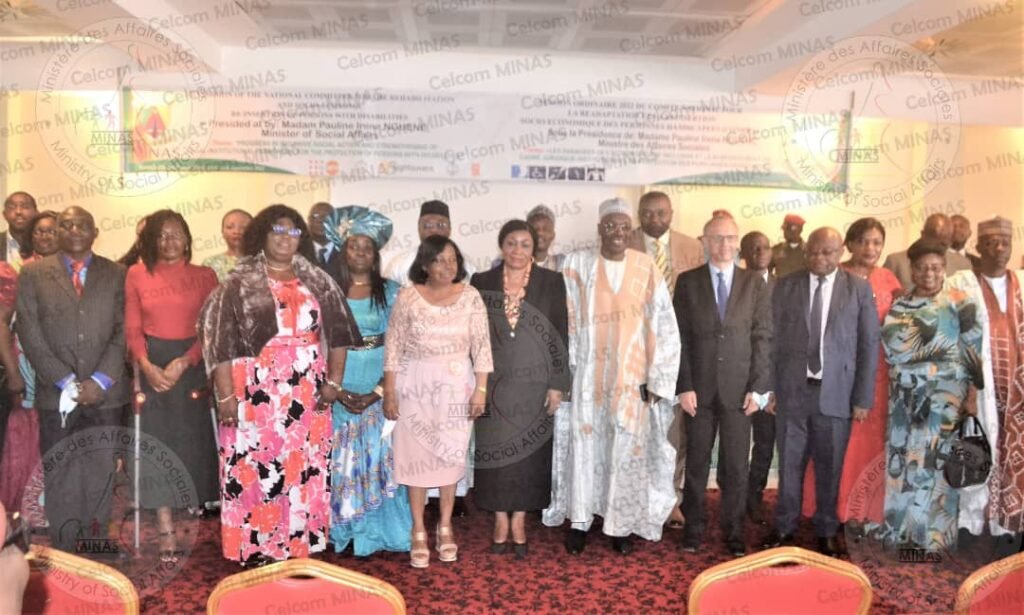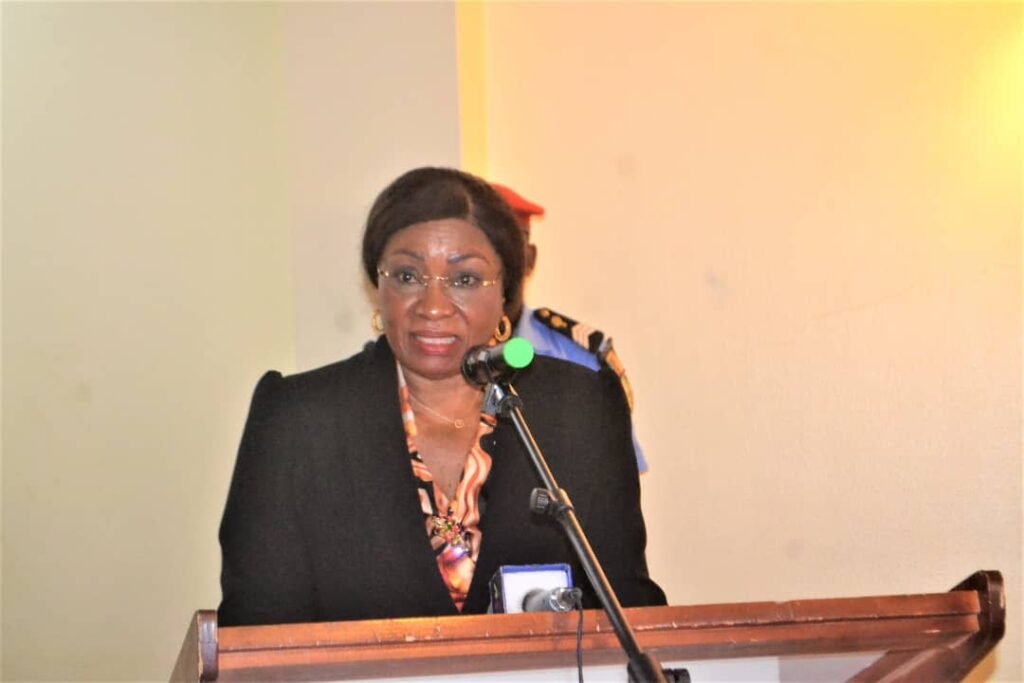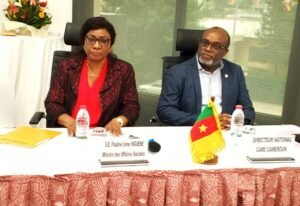Social Affairs’ Minister, Pauline Irene Nguene chaired on September 13, 2022, in Yaounde, the two-day session of the national committee for the rehabilitation and socio-economic reinsertion of persons with disabilities.

Placed under the theme: “Progress in inclusive social action and strengthening of the legal institutional framework for the protection of persons with disabilities.”, the two-day event launched on September 13, 2022, in Yaounde, Cameroon is highly attended by government officials from the ministries of social affairs, employment and vocational training, key actors, civil society organizations and people living with disabilities (PWDs).
The 2022 session of the national committee for the rehabilitation and socio-economic reinsertion of persons with disabilities kicked off a general overview of actions and progress made in Cameroon in 2021. The presentation was made by Mrs. Ambe Angelica, Director of the department of social protection of persons with disabilities and elderly persons.
Mrs. Messanga Grace, representative of the physically challenged in the session praised the different initiatives put in place by the government as well as the legal instruments ratified over the past years. She appreciated the fact that the age limit for children living with disabilities was alleviated, giving them a chance to have access to education. Yet, Grace believes government can do more for an inclusive society where people have equal rights and opportunities. She pointed out the fact that PWDs should be taken into account in all major competitive entrances and employed at various job positions like normal persons.
Added to the various challenges faced by PWDs, the spokesperson of the national network of PWDs in Cameroon, Emmanuelle Tchotchom, said despite the numerous and laudable efforts undertaken by the government in recent years notably with the law of April 13, 2010, protecting people living with disabilities, there are still discriminatory and stigmatization practices observed on the field. She said more is needed to strangle some existing myths as PWDs are victims of abuses, many are not accepted in their families and there is a lack of confidence and trust even in the professional milieu.

In her keynote address, Pauline Irene Nguene, Minister of social affairs underscored the various actions carried out by the government and most importantly, the main international legal instruments ratified in 2021. She cited among others: The Marrakesh Treaty aimed at facilitating the access of the blind, visually impaired, or otherwise print disabled to printed texts or published works; the United Nations Convention on the Rights of Persons with Disabilities; the Protocol to the African Charter on Human and Peoples’ Rights.

As concerns initiatives set up by the government to improve and strengthen the legal and institutional framework for the social support of PWDs, Minister Nguene outlined the practical guide and user manual on accessibility to infrastructures and public buildings or buildings open to the public (2008); the practical guide on the accessibility of young disabled persons to Education. (2009); the Monograph of trades accessible to persons with disabilities by type of impairment; the national policy document for the protection of persons with disabilities and its action plan of 2017-2021 with 8 strategic axes (2017);
Social affairs’ Patroness equally outlined the fact that the Head of State is committed to granting equal opportunities to all its citizens and PWDs are not exempted from the different strategic actions mapped out by the government.
“Cameroon’s Vision by 2035, the challenge of which is the development of human capital aimed at the one hand at providing this population with good health and education services, knowledge and professional skills; and on the other hand, to facilitate their integration into the job market. This is the purpose of the second pillar of the National Development Strategy 2020-2030 (SND30) which highlights the place of persons with disabilities in the « Development of human capital and well-being » to guarantee economic growth and sustainable and inclusive social development. I would like to recall that our country is constantly carrying out specific actions to equalize opportunities and facilitate access for persons with disabilities of all categories to opportunities, benefits, and preferential measures provided for by the legislative and regulatory framework relating to the protection and promotion of persons with disabilities.”

The session that takes place in Yaounde from September 13 to 14, 2022 will end up with another series of key recommendations expected to help in building an inclusive society desired by all.
Elise Kenimbeni





